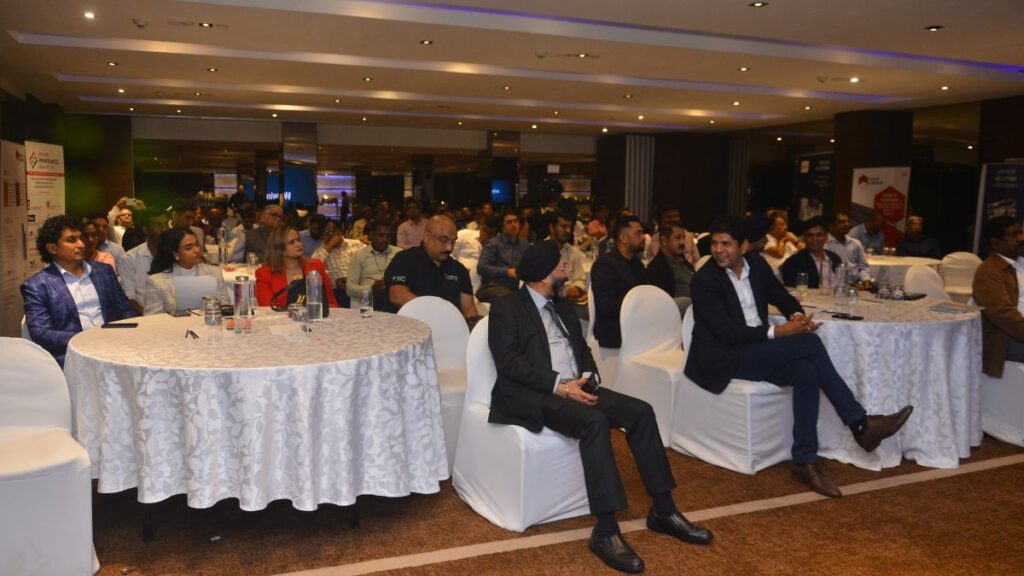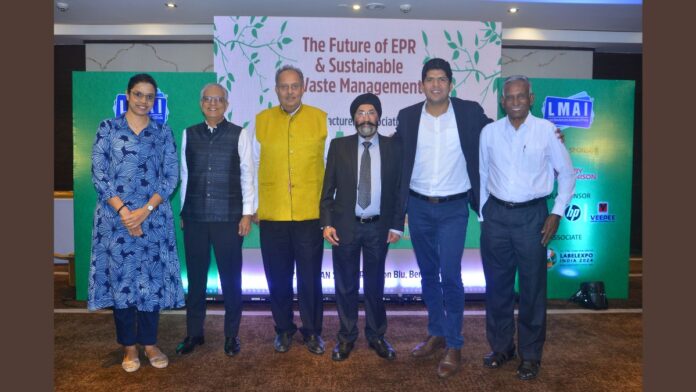Label waste, often associated with product packaging, can indeed contribute to environmental degradation if not managed properly. Labels, especially those made from non-biodegradable materials, can end up in landfills, contributing to the overall waste problem. Effective management strategies are essential to mitigate the environmental impact of label waste.
Extended Producer Responsibility (EPR) and sustainable waste management have been gaining increasing attention globally as part of efforts to address environmental concerns and promote a circular economy.
To create awareness in the Label industry LMAI‘s (Label Manufacturing Association of India) conducted a seminar on The Future of EPR & Sustainable Waste Management, on 19th Jan 2024 at the Radisson Blu Hotel, Bangalore.

Avery Dennision, ACME Rolltech, HP, Veepee Graphic Solutions, and UPM Raflatac were among the notable speakers. Subjects that were covered during the event.
- Design for Sustainability: Encourage product manufacturers to design labels and packaging with sustainability in mind. This includes using eco-friendly materials, minimizing unnecessary packaging, and designing labels that are easy to remove or integrate into recycling processes.
- Biodegradable and Compostable Labels: Explore and promote the use of biodegradable or compostable label materials. These materials break down more easily in natural environments, reducing the long-term environmental impact.
- Recycling Programs: Establish or support recycling programs that specifically target label waste. Collection systems and recycling facilities can be designed to handle label materials effectively, preventing them from ending up in landfills.
- Educate Consumers: Increase awareness among consumers about the environmental impact of label waste and the importance of proper disposal. Clear labeling on products can guide consumers on how to dispose of packaging and labels responsibly.
- Innovative Materials: Support research and development of innovative label materials that are both environmentally friendly and functional. This could include labels made from recycled materials, plant-based alternatives, or even edible materials.
- Waste-to-Energy Solutions: Explore waste-to-energy technologies that can convert label waste into energy. While this doesn’t eliminate the need for proper disposal and recycling, it can provide an additional avenue for reducing the environmental impact.
- Consumer Awareness and Engagement: As environmental consciousness grows among consumers, there may be an increased demand for sustainable products and transparency in the supply chain. Companies that embrace EPR and environmentally friendly practices may gain a competitive edge.
- Circular Economy Integration: The shift toward a circular economy, where resources are reused, recycled, and repurposed, is likely to influence waste management strategies. EPR will play a crucial role in fostering circularity by encouraging product design for recyclability and promoting the use of recycled materials.
- Technological Innovations: Advancements in technology, including artificial intelligence and robotics, that play a significant role in improving waste sorting and recycling processes. Automation enhances efficiency and accuracy in separating different types of materials, making recycling more effective.












